Head of Department
Vivian Kvist Johannsen
vkj@ign.ku.dk
+45 35 33 16 99
+45 20 30 09 69
The world is our laboratory
Our data is collected from many sources, such as: The Danish forests, Greenland’s Arctic environment, the Earth’s core, Statistics Denmark, interviews in an African village, satellites in space.
The Department is part of the Faculty of Science at the University of Copenhagen – the largest natural science research and educational institution in Denmark.
The department has;
450 employees
150 PhD students
1,500 bachelor and master’s students
An annual turnover of 290 million DKK.
As a part of education, consultancy and research IGN maintains three arboreta, two in Hørsholm, Denmark and one in Greenland.
A unique collection of trees and bushes in a beautiful park. The collection is the biggest collection in Denmark with around 2000 species.
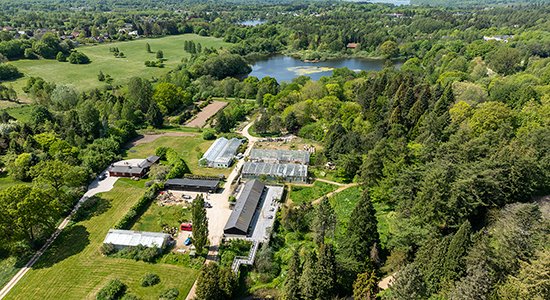
A collection of trees that are traditionally used as urban trees.
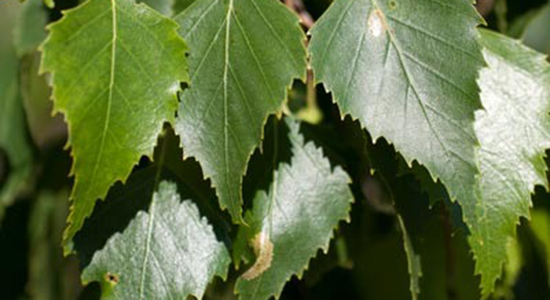
One of the most extensive tree-line arboreta in the world, comprising about 150 hectares, with about 110 species and about 600 provenances.
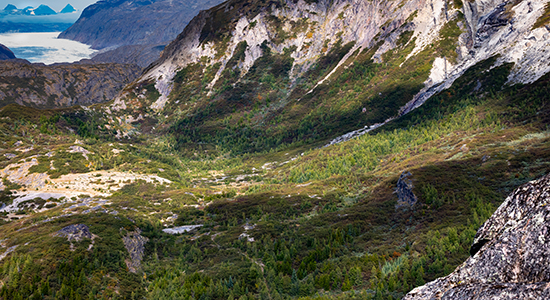
IGN is on behalf of The Faculty of SCIENCE responsible for the following field stations
Skalling Laboratory is used for field studies and as a course location for employees, students and guest researchers at University of Copenhagen.
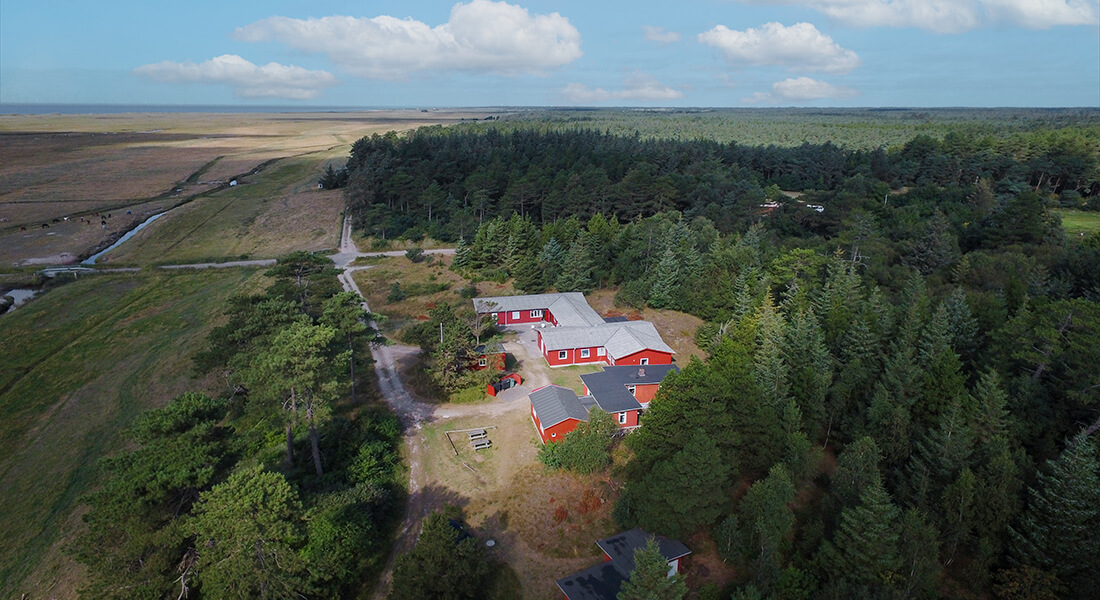
Salten Skov is used for field studies and as a course location for employees, students and guest researchers at University of Copenhagen. (danish only)
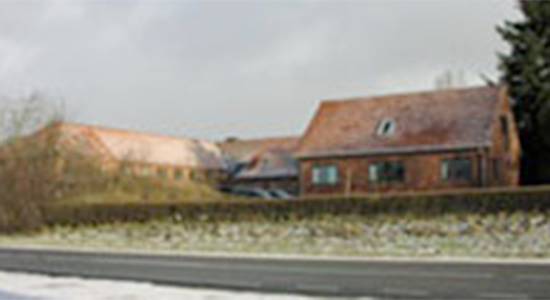
The Station provides a logistic base for the ongoing glaciological, hydrological and geomorphological investigations of the Mittivakkat Glacier and its catchment.
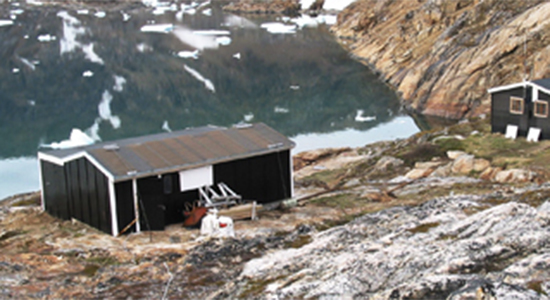
Our research focuses on issues such as the consequences of, and ways of adapting to climate change, ensuring the availability of clean drinking water; energy and raw materials; management advice on natural environments and forests to secure biodiversity and ecosystem services.
We work with designing sustainable and liveable cities; economic and demographic changes in developing countries; and data from satellites, drones and geoinformatics.
We conduct research and teach within the Earth’s past, present and future physical, chemical and biological conditions and their interaction with society and people.
Find out more about our research
We have a strong tradition of interdisciplinary collaboration with both national and international research institutions. We hosts a number of research centres and we contribute to a wide range of research networks, including Geocenter Denmark and PartnerLandscape.
For private companies and local authorities we solve specific tasks and provide innovative research-based solutions.
We advise businesses and public bodies, and contribute with knowledge and solutions to a sustainable development, for example within the United Nations’ 17 sustainable development goals.
We carry out public-sector services for the Ministry of Environment and Food of Denmark and The Danish Nature Agency where we among other things monitor the condition and development of the Danish forest.
The Department offers bachelor and master’s programmes in Geology, Geography, and Landscape Architecture, as well as master’s programmes in Nature Management. We also contributes to a wide range of other master’s programmes, including Climate Change, Sustainable Forest and Nature Management, Agricultural Development and Sustainable Tropical Forestry.
At the Forest and Landscape College in Nødebo in the northern part of Zealand, we educate and train Forestry and Landscape Engineer and Urban Landscape Engineer for the green sector.
Our graduates are in demand both in Denmark and abroad. They work with urban planning, environmental protection, climate change, energy and raw materials, globalisation, and management and consultancy within forestry and nature.
Find out more about the Departments Study programmes.
AnaEE (Analysis and Experimentation on Ecosystems) Denmark is a joint research infrastructure for the University of Copenhagen, the University of Aarhus, the Technical University of Denmark and the University of Roskilde, where in a variety of ecosystem types (forest, heath, grassland and intensive agriculture) manipulations can be made with climate and environment.
The knowledge gained is used to predict the response of ecosystems to changes now and in the future, and to develop new strategies for optimal utilization of the total ecosystem services from nature. AnaEE Denmark and at the same time the Danish contribution to the ESFRI infrastructure AnaEE (anaee.com) which is expected to launch as European infrastructure (ERIC) in 2020.
All 10 experimental platforms are open to external users for user payment via a standardized model of access - if the use does not affect ordinary use.
Klaus Steenberg Larsen ksl@ign.ku.dk
HOBE is a hydrological observatory established in 2007. HOBE was established with the objective to create an experimental catchment infrastructure where measurements, experiments and modeling have been carried out as a basis for hydrological research. The focus area is inland to Skjern River.
HOBE has received extensive support from the VILLUM Foundation, and in addition there are a number of other projects that have utilized the infrastructure built in the upland. HOBE participates in various European networks including ENOHA and eLTER.
The data collected is available for free and can be downloaded from https://enoha.eu/ or by contacting Karsten Høgh Jensen. Interested parties can access experiments in the area.
http://www.hobecenter.dk/
https://enoha.eu/
https://www.lter-europe.net/lter-europe/projects/eLTER
Karsten Høgh Jensen på khj@ign.ku.dk
ICOS/DK is a network of measuring stations in Denmark and Greenland for measuring concentrations of greenhouse gases in the atmosphere and their exchange with ecosystems.
ICOS/DK is the Danish contribution to the ESFRI infrastructure ICOS RI (Integrated Carbon Observation System - Research Infrastructure), established as a European Infrastructure Consortium (ERIC) in 2015.
ICOS/DK follows the common standards and protocols for measurements, data collection, quality assurance and publication of data developed in connection with the construction of ICOS RI.
Data from the individual measurement stations is continuously available through the ICOS-Carbon Portal. It is also possible to use the locations where the measurements are made for other field experiments, as long as the ICOS measurements are not affected.
Thomas Friborg tfj@ign.ku.dk
LTER-DK (Long-Term Ecosystem Research in Denmark) is a joint research infrastructure for University of Copenhagen, the University of Aarhus and the Technical University of Denmark of existing Danish platforms for long-term monitoring of ecosystems linked to the ESFRI and eLTER network of research stations.
LTER-DK addresses ecosystem and socio-ecological research issues such as biodiversity loss and climate change adaptation and mitigation in a holistic and multidisciplinary manner with the aims to improve understanding of ecosystems and their long-term responses and adaptation to environmental and societal drivers.
The research platforms span facilities across terrestrial, freshwater and coastal water environments, and cover multiple stressors and their impacts on natural resources, ecosystems and biodiversity.
Data are stored centrally in Europe in the database DEIMS, which makes it possible to create system and cross-system analyses and modelling, and thereby provide valuable answers to local and global challenges for scientific communities, students, policy makers and other users outside academia.
Data and facilities are open for use taking the carrying capacity of the platforms into account.
Inger Kappel Schmidt iks@ign.ku.dk
UAS-ability is a research infrastructure that offers access to various types of drones, instrumentation and testing facilities in Denmark. At the University of Copenhagen, PLEN, BIO and IGN are part of the application track in the program where we develop methods and instrumentation for use in ecosystem research, including plant growth and surface characteristics. The infrastructure has several drones, as well as sensors for measuring surface temperature, spectral signature, vegetation index as well as surface roughness and topography.
It is possible to apply to use the infrastructure for research purposes and for a fee. The use can either be in the form of parts of the instrumentation or to assist in making certain measurements over a limited period of time.
Thomas Friborg tfj@ign.ku.dk
Head of Department
Vivian Kvist Johannsen
vkj@ign.ku.dk
+45 35 33 16 99
+45 20 30 09 69
We believe that engaging diverse perspectives is a prerequisite when striving for the highest level of quality in research, teaching and administration. A culture of diversity and inclusion therefore benefits everyone – it can be achieved, if we ‘lead by example’.
In 2020, the IGN administration recognized a need to address concerns regarding gender equity at the department, specifically in terms of new faculty hires and retention of faculty and administrative employees. The administration decided to establish a diversity committee for the study year 2021-2022.
Apart from concerns about gender equity, the Diversity Committee addresses broader issues about inclusion and diversity and how to build equitable organizational structures, and a culture of inclusive excellence for both students and employees.
The Diversity Committee will seek to generate attention and spur discussions about equality and equal opportunities; gather knowledge about existing structures of inequalities and their underlying causes; empower voices pushing for change; and encourage and develop sustainable goals for equality and diversity for the future.
We will gather fact-based knowledge and share stories about the structural load bearing systems at our department concerning equal opportunities with respect to:
We believe that engaging diverse perspectives is a prerequisite when striving for the highest level of quality in research, teaching and administration. A culture of diversity and inclusion therefore benefits everyone – it can be achieved, if we ‘lead by example’.
The Diversity Committee at the Department of Geosciences and Natural Resource Management (IGN) is a working group of nine people who hold different positions in research, teaching, leadership and administration and who represent the department’s five academic sections and the administration.
We work collectively, thus engaging our different perspectives and drawing on our different backgrounds and expertise.
Christine Benna Skytt-Larsen (Assistant Professor, Geography)
Ditlev Otto Juel Reventlow (Postdoc, Forest, Nature and Biomass)
Inge Fisker H. Olsen (Special Consultant, IGN Administration)
Kristoffer Szilas (Associate Professo, Geology)
Megan Lynn Maurer (Assistant Professor, Landscape Architecture and Planning – Society)
Mona Chor Bjørn (Assistant Professor, Forest, Nature and Biomass)
Richard Hare (Teacher, Landscape Architecture and Planning)
Vivian Kvist Johannsen (Head of Department)